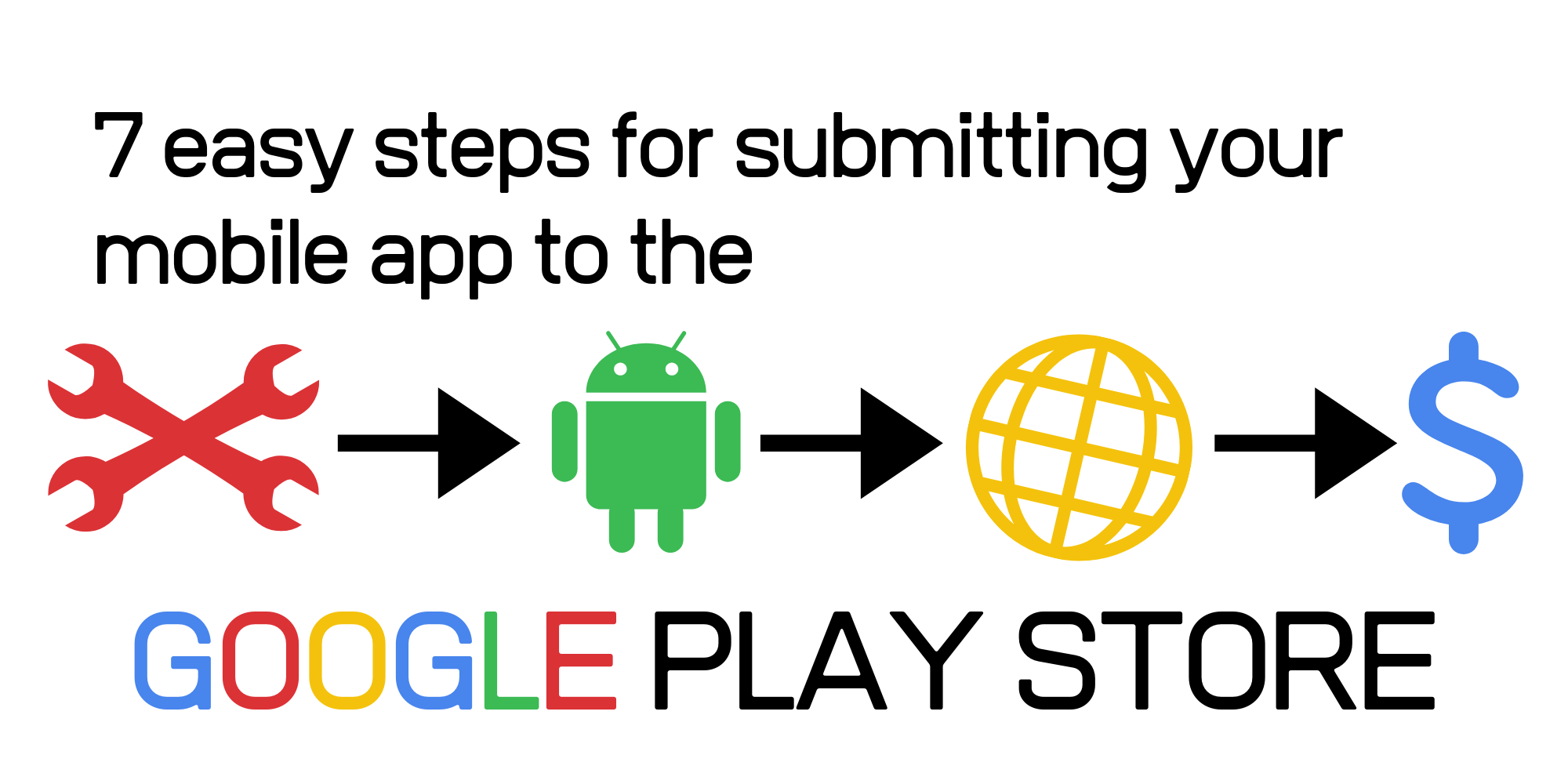Chat with Ava - Your AI Business Consultant
Hi I'm Ava, your AI guide to supercharging your business!
Whether you're already running a business or dreaming of starting one, I'm here to help turn your vision into reality using AI powered freelancers. Share your business goals, and together, we'll create a project that our talented freelancers can bid on. Let's make your vision a reality!
I have a business
I'm starting a business
Something went wrong while sending the conversation to your email. Please try again later.
You can only save your conversation once per hour. Please try again later.
Your conversation is too short. Keep chatting with Ava to enable saving.
Android App Development
This article will cover in detail about all things Android App Development.
Jun 16, 2022 • 17 minute read
Updated on Mar 6, 2023 by Simon S.

Experienced Content Writer and Editor
Copy to clipboard failed, please try again after adjusting your permissions.
Copied to clipboard.

Question | Answer |
|---|---|
Question | Answer |
Question | Answer |
Question | Answer |
Question | Answer |
The Android operating system (OS), is the most popular mobile operating system currently used for software development by many of the major device manufacturers such as Samsung, HTC, LG, Sony and Motorola. You may be surprised to know that, according to a survey by Statistica, Android holds a leading market share in mobile operating systems worldwide of 87%, compared to its competitors.
By choosing Android for your mobile app development, you will gain access to a powerful, high tech operating platform. So, it stands to reason that utilising Android technology in your next app development project would be an extremely smart option to raise your business potential to new heights.
This article will help to breakdown everything you need to know about:
What is Android and what is it used for?
Android is a Linux-based operating system (OS) that has been around for the past 15 years. The Android OS was released in an open-source format to advance open standards across mobile devices. This means that developers can customise and modify it however they want to suit each device. It was initially developed by Android Inc., then later it was purchased by Google and is now widely used in a large proportion of mobile touchscreen devices such as smartphones and tablet computers.
From when it was first created back in 2008, the Android OS has received a number of version updates to improve it with enhanced features. Each Android version release has been code named after a particular dessert alphabetically as shown below:
Even though Android is renowned as a mobile operating system, it's actually not limited to mobile phones only. Its technology extends to other devices like laptops, televisions, cars, watches, portable music players and handheld game consoles. The main reason for this is that Android provides such a rich application framework for creative apps and games to be built for a range of mobile devices.
Some of the most popular categories of Android apps used today would be:
To dissect it a bit more, the Android OS is made up of Java applications running on a Java-based application framework. As such, software and app developers are able to incorporate its technology to create a multitude of mobile apps that are then sold via online app stores such as Google Play store. As an added sweetener for Android users, they can also link their mobile devices with other Google products like email platforms, video streaming services and even cloud storage.
There are so many benefits to using Android technology for your mobile app development including:
As you can clearly see, there are a whole range of reasons to choose Android for your mobile app development. From creating innovative apps and games, it caters to every user's need to make life more easier with information readily available at their fingertips.
How exactly does Android work?
Now we're going to get a bit technical. The way that Android mobile applications are developed is that they are coded in the Java, C++ and Kotlin programming language. Since Android is available as an open-source for developers to create applications, it also provides Android SDK (Software development kit) to help develop software. The Android SDK tools compile your code along with any data and resource files into an APK or an Android App Bundle.
The Android operating system framework is divided into five separate sections which are:
All in all, it takes someone with a really in-depth understanding of all the concepts within Android's system framework to be able to develop a fully functional mobile application.
Why is Android application development so important for your business?
So you may be wondering why you should use Android to develop your mobile applications. Well, the pure appeal of Android is that it offers a unified approach which means developers only need to develop software for Android, since their applications will be able to run on multiple devices powered by it.
The Android applications themselves are normally developed in the Java programming language by using the Android Software Development kit. Once the apps are created, they can then be easily packaged and distributed via online stores like Google Play Store or the Amazon Appstore.
The sheer global dominance of Android in app development is staggering as it powers literally millions of mobile devices around the world. It is the largest installed operating system of any mobile platform and is continually growing with more that a million new Android devices being activated everyday.
So, it goes without saying that there are limitless reasons why you should choose Android for your mobile app development. Here are a few points to consider:
The Power of Google
The Android OS, developed by Google, is an open-source platform meaning developers are free to choose which apps are preinstalled on devices when building their mobile apps. You can also modify the design of apps for a more customised user experience. This open minded philosophy encourages new concepts to be realised which is crucial in creating useful apps that add real value to the user.
Low development cost and high ROI
Developing apps for Android is quite cheap. The development tools used to build mobile apps like Android SDK, JDK, and Eclipse IDE are all free to download. This is very useful for a start up or emerging business to promote their new app. Also, Google charges a very small fee to distribute your mobile app on the Google Play Store. All these things result in a higher return on your investment.
Quick and easy to develop
Android apps are easier to develop than most other platforms since it uses the Java programming language that most designs are familiar with. What's more, you don't need to hire very skilled, or expert developers since even amateurs can handle the coding required to create great mobile apps. Android's open working model and sheer availability of resources also makes it exceptionally quick to develop mobile apps.
A flexible development environment
As Android is open-source, you have greater flexibility to create your mobile app with custom features that your user would want. It simply allows developers to be more creative to experiment and innovate. Android provides unmatched customisation features for mobile app development which is why it has become so popular among developers and companies alike.
Social media optimisation
It's a well known fact that Android is the best suited platform for developing social media apps. From a marketing perspective, businesses that include social media functionality in their mobile apps are able to reach new customers with ease. Better yet, Android apps are better able to fully integrate with most social media sites like Facebook, Twitter and Instagram for increased user engagement.
Multi-platform support
Android rules the app market due to its compatibility with more devices than its competition. Since there are a vast amount of hardware devices out there powered by Android, this makes it much easier to port applications to different platforms. Android app development can also be used to run on Windows, Mac OS or Linux.
A higher success rate and customer reach
With Android's undisputed market share of around 87% within the mobile phone industry, it has a very far reaching demographic and geographical presence worldwide. This equates to a higher success rate due to its higher proportion of potential customers which will no doubt help to generate more income for your business.
Open Distribution Model
Since there are very few restrictions on the content or functionality of an android app, the developer can distribute it through the Google Play store, as well other online channels like Amazon's app store.
At the end of the day, by incorporating Android app development into your business, you have the power to not only promote your brand reputation, but also to increase your customer engagement and maximise your profit margins. I'd say that's quite a win-win situation.
What is the difference between Android and iOS?
So you may be left wondering why you should use Google's Android instead of Apple's iOS for your mobile app development. Even though they are both mainly used in mobile technology, there are very distinct differences between the two operating systems. With this said, you will need to carefully weigh up your options when selecting the right platform to launch your mobile app.
Let's now look at the main differences between Android and iOS in more detail:
Interface
Both Android and iOS use touch screen interfaces with similar functions like swiping, tapping and pinch-to-zoom. Android's OS, which is primarily Linux based and open source, acts more like a PC as opposed to iOS. This is because Android's overall interface and features are able to be fully customised compared to iOS.
Development costs
There is quite a big difference between the cost of development of Android and iOS. Since iOS app development is mainly done using XCode, you will need a Macbook or iMac to run it, adding to your overall cost. The advantage of Android app development is that it can be done on any standard PC which will lower your cost substantially.
Publishing process time
Another factor to consider is the process of publishing your app onto an online store. With Android app development, you are able to quickly and easily upload your application as opposed to iOS,where it takes longer as there are more barriers to go through before your app goes live. An added benefit with Android is that you can pre-release your app as a beta version to obtain feedback from users before its final release to the public. As they say, time is money.
Programming language
Android and iOS are developed on different platforms, with Java or Kotlin coding language being used for Android app development while Swift or Objective C is required for iOS Native app development. This means that the developer requires a completely different set of skills to be able to successfully handle app development for each platform.
User engagement
What you really need to keep in mind when choosing between either Android or iOS app development is that it's particularly important to have a high amount of users of your app. You want your users to be constantly engaged with your app. This is where Android leads the way as it typically has more engaged users of its apps compared to iOS apps.
Market share
Another attractive selling point of Android compared to iOS is the massive range of Android apps that are available to download. With around 2.6 million apps, Android takes pole position versus iOS with around 2 million apps available. Just check out the Google Play store to see for yourself the huge variety of apps, from lifestyle, fitness and business tools to exciting interactive games. On top of that, most of the apps are completely free of charge. Really, what's not to like about that.
In summary, the future of Android app development is very bright due to its strong demand with consumers within the booming handheld device market. That's why so many organisations, both big and small, are adopting its technology due to its immense popularity as an extremely versatile app development platform.
While most consumers make their choice between iOS and Android devices based on their personal preference, you as a business owner don't have that luxury. With that said, it's vital that you firstly do your research before choosing what app development platform will best fit your business needs.
Why do you need to hire an expert Android developer?
It's a proven fact that 1 out of 5 mobile app users stop using an application after just one time. It's plainly clear to see why Android app developers are in such high demand in this day and age. So if you want to stay ahead of the game, then developing a cutting edge Android app for your business is the way to go. Not only will it help to grow your business profile, it will also keep your users satisfied to continue to use your services.
That's why, by engaging the services of an expert Android developer to build your app, they will be able to manage all aspects in the development process from start to finish. They have the proven technical know-how and years of experience to get your project done in no time at a very reasonable rate, saving you both time and money. They can offer innovative solutions to any sized business to deliver world-class Android apps to make your creative ideas come to life.
There are a plethora of reasons why you may need to hire an expert Android developer such as:
The fact that the total number of mobile users worldwide is expected to hit 7.49 billion by 2025, developing a mobile app is a very smart way to connect with potential customers. With the rapidly growing rate of mobile users, it's a sure bet that hiring an expert Android developer will help your mobile app stand out from the crowd.
By hiring an expert Android developer, they can design a successful app for you that can also be integrated into your website and social media page with the latest updates across all these platforms. This will make sure that you can reach the maximum number of customers whilst helping to retain your existing ones.
If you don't currently have a mobile app for your business, you are certainly missing out on a competitive edge for your business to grow. Sure you could try to wing it and create a mobile app on your own, but is that really achievable? Hiring the services of an expert Android developer may be the most sensible decision you'll likely make.
How much does it cost to hire an expert Android developer?
So you've finally made that all important decision to build an Android mobile app. So now you may be curious how much you will need to invest to hire a top Android developer to create it. Working out how much it will cost to hire a developer can be a complex process.
Some things to consider that can affect the final price are:
Delivery timeline of your project
What is the estimated time you will need to complete your project? Bear in mind that app development can take a few weeks to a few months depending on what features you require.
Developers technical expertise
You need to define what skills you need in a developer. Do you require UX and UI knowledge or server-side scripting experience? What about security features like two-factor authentication? The more skills you need, the more you will need to spend
Scope and complexity of your project
Defining your overall project requirements will prevent problems along the way and not blow out your budget. Determine if your app requires complex features like API integration or other customisation.
How the developer prices their services
The price of a developer largely depends on their experience. For instance, a basic Android developer may charge $15+ per hour, whereas an intermediate to advanced Android developer may charge upwards of $35 per hour. It all comes down to what you need done.
What region the developer is from
Geographic location of the developer is a big factor in the rates they charge. So if you are thinking of hiring a freelance developer from North America, UK or Australia you can expect to pay the highest prices on average, as compared to a developer from Eastern Europe, Asia or India. With this said, it doesn't mean you should opt for the lowest cost option as it comes down to quality of work since cheaper is not always necessarily better.
Hourly rate vs Fixed Price
A further predicament you will no doubt be faced with is whether to hire a developer based on an hourly rate or a fixed price structure. There are both advantages and disadvantages to both. One of the main concerns with hourly pricing in app development is not knowing the final price to complete your project. This results in an open-ended price structure which may add up considerably at the end.
On the other hand, a fixed price contract may be more appealing since it has a more transparent fee structure. On the downside, you may be risking quality with a fixed price structure compared to hourly rates which offer more flexibility since you pay as you go. Ultimately, the choice is yours based on what you're comfortable with.
By hiring a freelance Android developer on Freelancer.com, you will gain access to top-notch talent with the highest experience from all around the world. As an added bonus, hiring an expert developer on Freelancer.com means you can agree to a fixed price or hourly rate up-front with no surprises down the track. That's what I call risk-free peace of mind.
How do I hire an expert Android developer on Freelancer.com?
There are so many different ways out there to hire an expert Android developer to design and manage your project. By hiring a developer on Freelancer.com, we aim to take the legwork out of this process by being able to choose from two flexible options:
● Post your project
With Freelancer.com, you are able to post your specific project on our site free of charge. Describe what you are looking for by providing a brief description of your project needs and attach any relevant documents. Once your project goes live, you should start getting bids from interested freelancers keen to take on your project. Once you've received a few offers, you then need to review each freelancer's bid to see which ones match your requirements.
● Hire a freelancer directly
You can directly engage with a freelancer by using the Hire Me option. Before doing this, you firstly need to have a verified payment method set up to utilise this feature. The main advantage is that you can browse through the Freelancer Directory to review the profiles cards of potential freelancers to engage directly with. Once you've offered a project to a particular freelancer, they can then decide to either accept, decline or make a counter-offer. It's an easy and fuss free way to find the perfect freelancer for your project.
Regardless of what option you choose in hiring a freelancer, you should ask some specific questions about what services they can provide. Be as clear as possible which will make it much easier to sift through candidates and ensure you are only contacted by freelancers capable of handling your project.
One other major consideration to take into account is to set a particular budget and timeframe to complete your project. When doing so, it needs to be appropriate to the actual work required to be done. Otherwise, you may deter the best candidates for the job and waste valuable time and effort that could be better spent on your project.
Here are some points to think about before awarding your project to freelancers:
Some other important aspects to look out for when trying to find top rated freelancers are:
What's more, If you feel like you need some help finding the right freelancer for your project, you can take advantage of our Recruiter Service. By hiring one of Freelancer.com's talent recruiters, they can connect you with the best freelance Android developers on the platform.
As a business owner, it makes total sense to hire a freelance Android developer for your upcoming project. It's like having your own in-house employees working remotely, except without all the hassle. At the end of the day, it's a lot less expensive as there are no training costs or salary expenses to worry about. What more could you ask for?
Also on the plus side with Freelancer.com, when you have developed a good working relationship with certain freelancers, you can simply just re-hire them again, saving yourself time having to re-post your project.
I hope the information in this article will make the task of finding your next freelance Android developer a truly rewarding and satisfying process. Start your search here.
Tell us what you need done
Enter your project name
Related Stories
Talk to one of our Technical Co-Pilots to help with your project
Recommended Articles Just for You

Got a great idea for an app? Need a new way to grow your business? We tell you everything you need to know about building a mobile app in 2020.
16 min read

Finished building your shiny new app but not sure how to submit it to the Apple App Store? Follow our step-by-step guide to make sure it's done right.
6 min read

Not sure how to submit your new app to the Google Play store? Follow our tutorial to make sure you do it correctly the first time every time.
7 min read

Not all mobile apps are crowned with the glory of success, some fail miserably. Avoid failure by learning from the top 5 mobile app failures.
8 min read
Thanks! We’ve emailed you a link to claim your free credit.
Something went wrong while sending your email. Please try again.
Loading preview
Permission granted for Geolocation.
Your login session has expired and you have been logged out. Please log in again.





